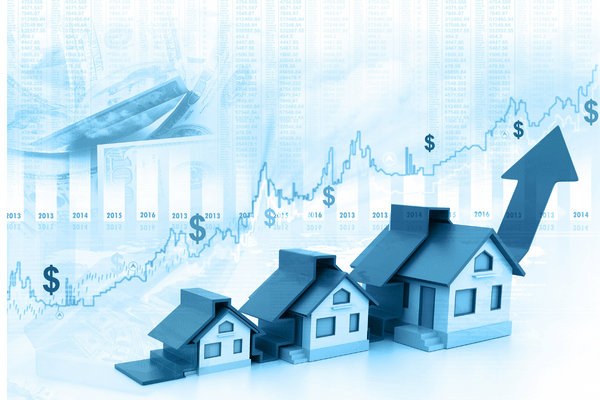Since the COVID pandemic of spring 2020, the housing market has seen tremendous growth. Redfin reports that the median sale price of an average American home increased by 24.8% between June 2020 and June 2021. A recent survey of real-estate professionals revealed that 78% of agents believe values are still rising in their local markets.
This housing boom has resulted in a surge of real estate agents. 91% of the real estate agents who were surveyed agreed that this is a great time to get into real estate.
It is strange to recall that in April 2020, many real estate professionals expected the market to slow as uncertainty gripped buyers and sellers during the pandemic.
Why did the housing market soar despite fears about the virus and subsequent recession? What does this rapid growth translate into for real estate professionals and agents who are looking to enter the real estate business in the near future?

Why the Housing Market Boomed when We Expected a Bust
Uncertainty is a curse for economists. Buyers and sellers are more cautious when there is uncertainty. In the United States, the COVID epidemic erupted in the spring of 2020. Uncertainty was all around. How many people would contract the virus? Is the housing market at risk if the economy is shut down? Is there enough toilet paper for the apocalypse to last?
There was also the fact that real estate property was “non-essential”, which meant that face-to-face transactions were halted in certain states. These conditions were a challenge to the housing market.
High Buyer Demand
Because of several factors, buyers flocked to purchase homes during the pandemic. So much so in fact that multiple offers for the same properties have created real estate bidding wars. Let’s look at some of the main reasons demand is increasing:
- Low-interest rates. To encourage home loan buyers, the Fed has lowered interest rates. Lower interest rates mean buyers can spend more on their homes and less on interest.
- Remote employment opportunities. People no longer need to live close to their workplaces because of the virtualization of office jobs. People began to move to cheaper areas, away from cities that could afford to rent.
- More space is needed. People living in apartments and small homes felt the need for more space after the lockdown was extended. This was combined with the increased demand for rural and suburban properties.
- Middle-to-high income. The pandemic was less likely to affect workers’ finances, so they were able to purchase homes. Unfortunately, the most severely affected by the pandemic were low-income workers who were unlikely to be looking for homes. The pool of qualified buyers didn’t decrease much, if at all.
Low Seller Supply
Although buyers are still desperately seeking homes, there isn’t enough housing to satisfy their needs. According to 65% of agents, there is not enough supply in their area to meet the demand.
Here are the reasons why supply has been so low:
- Fear of contagion. Sellers waited to put their homes up for sale because they did not want anyone touring their homes and potentially spreading the virus.
- Slow construction. Since 2008’s housing market crash, new home construction has been slower than usual. Builders have struggled to catch up due to the shortage of building materials. Many homeowners used the lockdown to start home renovations.
- There is limited land available. Limited land is available in some markets for new homes.
- Aging in your own home. Many seniors choose to stay in their homes and not move into retirement homes or live with family members.
- Sellers are trying to time the market. Sellers are trying to time the market by watching values rise month upon month, and waiting until they believe values have peaked.
This high demand and low supply are what lead to price increases. The price of goods and services goes up!
Although price increases can be bad for buyers, they are a good thing for sellers. They’re also good for real estate agents, who get a portion of the sale price as commission.
What Real Estate Agents Did During the Housing Market Boom
The housing boom has resulted in impressive job growth for real estate agents.
Agents are paid a commission. The higher their sales volume, the more income they earn. Agents are expecting an average increase in sales revenue of $1,161,600 year-over-year. This is a great time to be a realtor!
According to survey data, 7 out of 10 real estate agents work more now than they did before the pandemic. This is due to hot market conditions. Agents are seeing an increase in their income as a result of the increased hours.
70% of agents polled believe they will make as much in 2021 as in 2020. 39% expect to make more this year than last.

What this rapid growth means for aspiring real estate agents
The impressive growth in real estate markets means that there is a lot of buyers looking for agents to assist them with their purchase. However, new agents will be faced with intense competition from existing agents.
However, the prospects for real estate agents are generally good. Agents surveyed agreed that new agents can succeed in today’s market if they have the right real estate school and support. Today’s agents can be successful by taking online courses in real estate and other training courses that will help them generate leads and grow their businesses.
Real estate may be the right career for you if you are looking for flexibility, unlimited income potential, and the freedom to be your boss. Register for your pre-licensure course to begin your new career as a realty professional.
